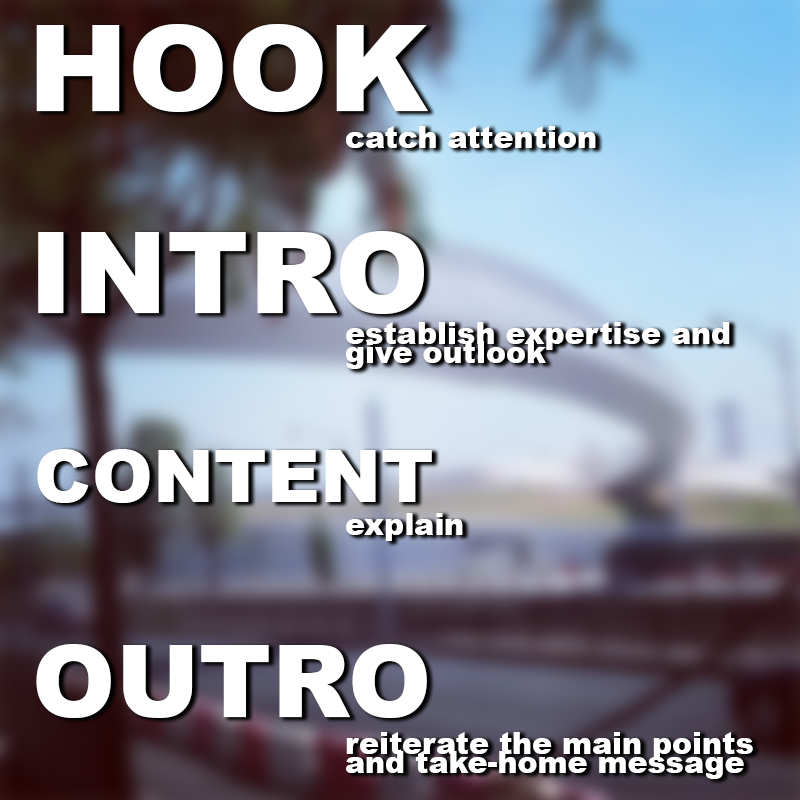One of the most daunting things I faced when preparing my first communication attempts was not WHAT I was going to talk about, but HOW?!
It helped me A LOT to understand that there are 4 CORE ELEMENTS that pretty much every communication piece needs. With those in mind, I could start figuring out what my main message should be. It made starting to write / script / create SO much easier.
I have found the same elements in every medium I tried:
- writing: academic articles, blog posts, even twitter threads
- speaking: giving talks in academia
- audio: podcasting
- video: educational web videos
All these different ways to communicate of course have their own characteristics. BUT! They also ALL basically follow the same principles!
Disclaimer: I have NO Masters in Science Communication or something. But I visited a large variety of workshops on these things as a postdoc, and I was also taught by advisers as a PhD student – and, yes, I watched way too many YouTube videos, too. So, if you have a formal education in this, or are more experienced, or simply have a *different* experience, I am looking forward to your feedback! (dennis@eckmeier.de or on Twitter) You can also find my professional website under www.eckmeier.de.
There are questions that people think you need to carefully strategize about. They will often tell you to think deeply about the target audience, and medium before anything else.
This is absolutely not how I personally came to science communication. I had something to say, and I had a medium I wanted to try out. So, my first real decisions are usually about content and structure. And you can think this through – to some degree – irrespective of the medium you’re planning to use.
Once you defined the (usually single) take-home message – deliverable in one brief sentence – you can flesh out the “skeleton” structure provided by what I think are the 4 core parts in communication:

- The Hook is what catches the attention of the audience. It can be a brief story about how you became interested in the subject, or it can be simply posing an intriguing question or problem. Make it exciting or funny! If it’s instructive, make sure to tell people what they will be able to do with the information you are going to give them.
If this is a talk, video, or podcast, you only have about 30 seconds to deliver, so keep it as brief as possible!
Things like cover artwork and title are also part of the hook! - The Intro is a quick overview of what the audience is going to get. And usually, it involves introducing yourself and telling people why you think you have some expertise to share.
- The Content, obviously, is the in-depth delivery of the information you want to convey. Often it will be some sort of journey. The goal of the “journey” is to lead the audience to accept your take-home message as a logical conclusion.
- The Outro will be a summary of the main stages of this “journey” and the explicit statement of the take-home message.
Laying out the Hook, Intro, Content, and Outro, before you start preparing your piece will ensure that all your bases are covered. Knowing your central message and the structure, you can start writing a script for your podcast or video, prepare your powerpoint or poster, or the first draft of your written piece.
Only then do I think about the audience. It mostly dictates the language and depth I can go to. But it doesn’t really change the take-home-message or this fundamental structure.
And understanding that there is always the same basic structure, makes it also easier to translate the same work into different media. For example, I first wrote this post as a thread on twitter, when curating for @sfprocur.
I hope you found this useful! You can ask me questions and follow me around on Twitter!